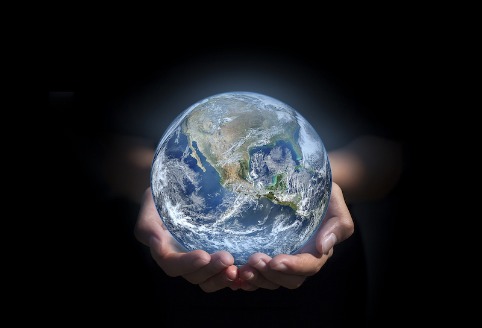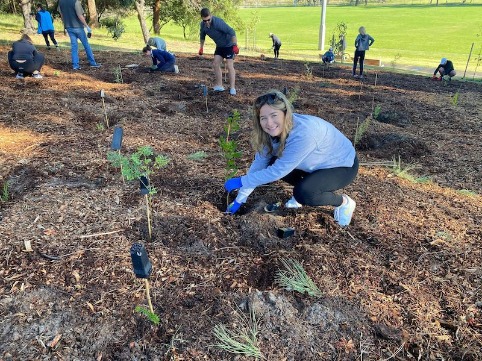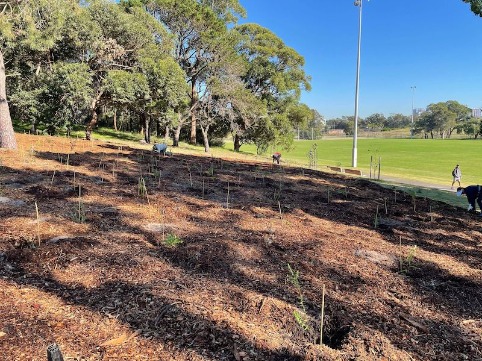Did you know more than 1 million species are at risk of extinction by climate change? Our Sydney team joined Randwick Council’s ‘Plant With Us’ event on April 23rd to demonstrate our support for environmental protection as we mark the 50th Anniversary of Earth Day this year.

Earth Day is on April 22nd each year: an annual event to demonstrate support for environmental protection, and more than 20 Charterhouse team members volunteered to plant trees at Heffron Park, Maroubra.
Small steps towards a better future, however we certainly need to rethink everything we know about global warming
It’s probably not news to you all that climate change is already happening, and it’s detrimental to human life too. More than 1 million species are at risk of extinction by climate change and by mid-century, as many as 30 to 50 percent of the total species found on Earth will have disappeared.

Here is what the next 100 years looks like the way we’re going:
By 2030 with continued deforestation of the Amazon rainforest, it will degrade to a point where it can no longer produce enough moisture, transforming into a dry savanna. Not only will this decimate the biodiversity in the rainforest, but it will also alter the global water cycle.
2040’s - in the North, frozen permafrost soils will thaw, releasing methane into the atmosphere, a far more potent greenhouse gas than carbon dioxide.

2050’s - As oceans continue to heat and become more acidic, coral reefs around the world will bleach and die. This will cause fish populations to crash, which will affect millions of people who rely on the ocean for their livelihoods, like fishing and tourism.
2080 - Global food production will enter into a crisis as soils become exhausted by overuse. Pollinating insects will disappear and the weather will become more unpredictable.

2100’s - The planet will be four degrees Celsius warmer, rendering large parts of the Earth uninhabitable and leaving millions of people homeless. Scientists predict that the sixth mass extinction will be well underway at this point, causing irreversible damage to the planet.









